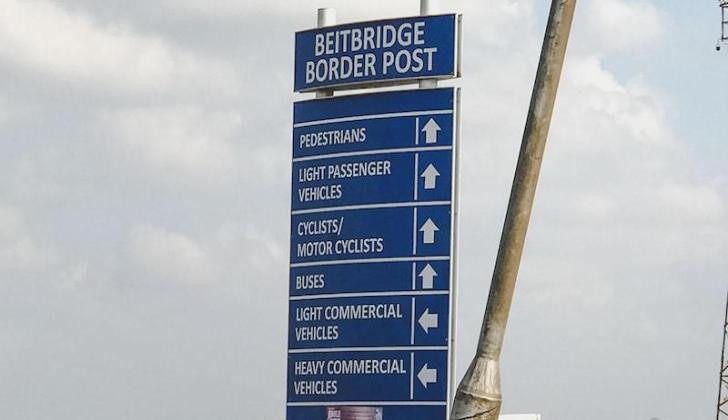News / National
Govt, Crossborders 4ED move to ease Beitbridge border fees
25 Jun 2025 at 08:03hrs |
0 Views

Crossborders for Economic Development (Crossborders 4ED) and the Government have reached a preliminary agreement to review border user fees for cross-border transporters using the newly upgraded Beitbridge Border Post, in a move aimed at lowering operational costs and boosting trade in the Beitbridge district.
The initiative is expected to provide relief to local cross-border traders, many of whom have long complained about the high fees charged by Zimborders - the consortium that upgraded the border in partnership with the Government. Currently, light cross-border vehicles towing trailers pay US$27 on departure and up to US$80 on return.
During the launch of the presidential empowerment scheme for cross-border traders in Beitbridge on Sunday, Crossborders for ED national chairman Mr David Masomere revealed that Transport and Infrastructure Development Minister Felix Mhona had agreed in principle to review the fee structure after hearing the concerns raised by the organisation.
"The Minister has noted our concerns and advised us to engage the Zimborders Consortium, who completed the border upgrade in partnership with the Government," said Mr Masomere.
He said discussions had already taken place with local leadership from the consortium, during which Crossborders 4ED proposed a pilot model to test reduced charges.
"We suggested compiling a list of 20 vehicles from bona fide Beitbridge operators which would temporarily pay about US$27 for one-way entry or arrival for light trucks and omnibuses towing trailers," Masomere said.
"This proposal will now be submitted to Minister Mhona. If successful, we plan to gradually increase the number of participating vehicles based on compliance by our members. We are grateful to the Minister and the Government for listening to our concerns and moving to address them."
Beitbridge is one of the busiest inland ports in Sub-Saharan Africa and a key gateway for trade between Zimbabwe and South Africa. Many residents in the border town rely on cross-border trade for their livelihoods, but high user fees have been a growing burden.
The border upgrade, completed under a public-private partnership model, has modernised infrastructure but also introduced a range of new charges aimed at funding maintenance and operations.
If the proposal is accepted, it could set a precedent for more flexible and inclusive fee structures for small to medium transporters, many of whom operate on thin margins.
The Ministry of Transport and Infrastructure Development, which oversees the modernisation of national transport hubs, is expected to review the proposal and announce the next steps in due course.
The initiative is expected to provide relief to local cross-border traders, many of whom have long complained about the high fees charged by Zimborders - the consortium that upgraded the border in partnership with the Government. Currently, light cross-border vehicles towing trailers pay US$27 on departure and up to US$80 on return.
During the launch of the presidential empowerment scheme for cross-border traders in Beitbridge on Sunday, Crossborders for ED national chairman Mr David Masomere revealed that Transport and Infrastructure Development Minister Felix Mhona had agreed in principle to review the fee structure after hearing the concerns raised by the organisation.
"The Minister has noted our concerns and advised us to engage the Zimborders Consortium, who completed the border upgrade in partnership with the Government," said Mr Masomere.
He said discussions had already taken place with local leadership from the consortium, during which Crossborders 4ED proposed a pilot model to test reduced charges.
"This proposal will now be submitted to Minister Mhona. If successful, we plan to gradually increase the number of participating vehicles based on compliance by our members. We are grateful to the Minister and the Government for listening to our concerns and moving to address them."
Beitbridge is one of the busiest inland ports in Sub-Saharan Africa and a key gateway for trade between Zimbabwe and South Africa. Many residents in the border town rely on cross-border trade for their livelihoods, but high user fees have been a growing burden.
The border upgrade, completed under a public-private partnership model, has modernised infrastructure but also introduced a range of new charges aimed at funding maintenance and operations.
If the proposal is accepted, it could set a precedent for more flexible and inclusive fee structures for small to medium transporters, many of whom operate on thin margins.
The Ministry of Transport and Infrastructure Development, which oversees the modernisation of national transport hubs, is expected to review the proposal and announce the next steps in due course.
Source - The Chronicle
Join the discussion
Loading comments…












